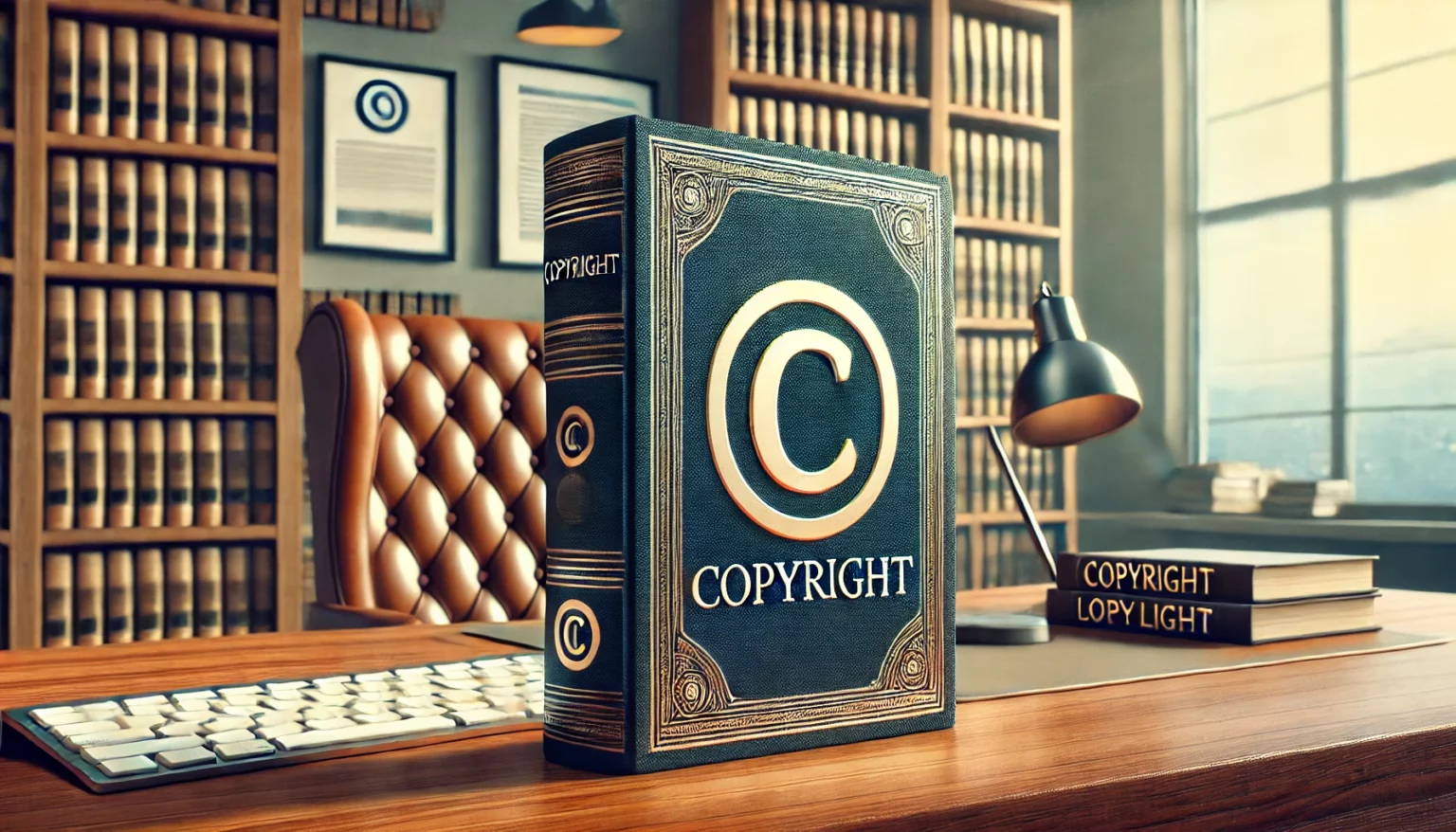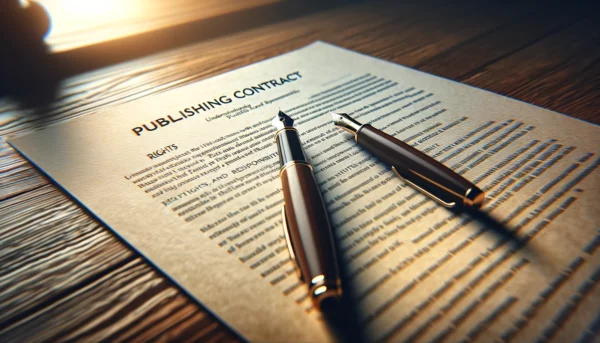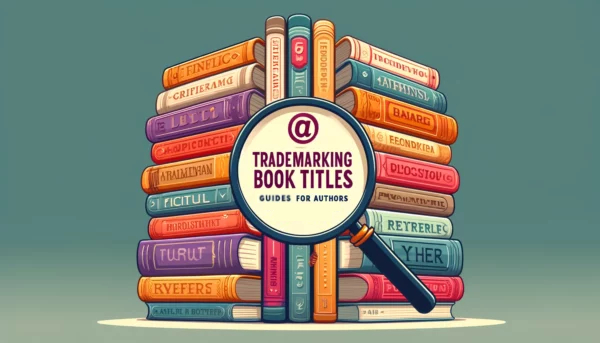Among writers, both novice and seasoned, there lurks a pervasive fear that can stifle creativity and hinder the sharing of work: the fear of idea theft. This anxiety of publisher idea theft is particularly acute when it comes to engaging with publishers, who are often seen as powerful gatekeepers in the literary world. Writers worry that their unique concepts, painstakingly cultivated, might be appropriated without credit or compensation once they reveal them to potential publishers. This concern spans from freelance writers contributing to blogs and articles, to novelists and short story authors aiming for publication in reputed journals or books.
The term “idea theft” encapsulates this fear, conjuring images of a writer’s original thought being stolen, claimed, and sold by another. While publishers are integral to the business of writing and publishing novels, the relationship between publishers and writers is sometimes viewed with suspicion. It’s crucial to recognize this fear and understand its roots and implications. This blog post and introduction set the stage to explore whether these fears are grounded in reality and how writers can protect their work while still pursuing successful publication.
The Reality of Publishing and Idea Originality
In the world of publishing, the concept of an “original” idea is more nebulous than most writers might assume. Ideas themselves—abstract concepts, themes, or story premises—are not safeguarded by copyright laws. Copyright protection extends only to the expression of an idea in a tangible form, such as the written words of a novel, the detailed plot of a screenplay, or the specific dialogue in a play. This fundamental principle of copyright law means that the mere notion of a story, no matter how inventive it seems, cannot be legally protected until it is fully expressed in a fixed, tangible medium.
Your Publishing Journey Awaits – Start NowThis lack of protection for ideas often fuels the fear and worry of idea theft among writers. However, it’s important to recognize that many ideas that seem novel are actually quite common in the publishing industry. Editors and publishers frequently encounter manuscripts with similar themes or concepts. This is not necessarily an indicative sign of idea theft but rather a reflection of the collective consciousness of society. A “similar idea” for example, may emerge independently in different writers’ works because of common influences, concurrent societal issues, or trends in current literature.
The experience of reading something “recently read” that resembles an unpublished work can be disconcerting for a writer, leading to suspicions of idea theft. Yet, more often than not, this is a case of parallel thinking rather than deliberate appropriation. Writers are usually exposed to the same cultural, social, and literary stimuli, which shape their creative processes in comparable ways.
Understanding this aspect of life in the creative industry can alleviate some concerns about idea theft. Recognizing that ideas are communal and often derivative in nature can help writers focus more on the unique execution of their story concepts—the aspect that truly differentiates one person, story, or piece of work from another and the only aspect that copyright laws recognize and protect.
How Copyright Laws Work in Relation to Ideas
Copyright laws are designed to protect the tangible expression of ideas, not the ideas themselves. This distinction is critical for writers to understand as they navigate the complex terrain of publishing. When a writer transforms an idea into a written work—be it a novel, a screenplay, an article, or any other literary form—it is the specific words, sentences, characters, and detailed descriptions that receive copyright protection. These elements are legally shielded from unauthorized use, ensuring that the original author retains exclusive rights to reproduce, distribute, sell, and display their work.
The Copyright Office plays a pivotal role in this system. It provides a formal avenue for registering creative works, which, while not necessary for copyright protection to exist, does offer significant legal benefits. Registration creates a public record of a work’s existence and can be crucial in the enforcement of copyright should disputes arise. For writers, registering with the Copyright Office bolsters their legal standing in protecting their written expressions against infringement, but it does not extend to the underlying ideas.
By understanding that copyright laws safeguard how ideas are articulated and published, not the ideas themselves, writers can better appreciate the importance of developing their unique voice and style. This sense of clarity helps demystify the legal landscape of publishing and underscores the creative value of their individual expression.
Steps to Protect Your Work
Protecting your written content before submitting it to an agent or publisher is an essential step for any writer aiming to safeguard their intellectual property. Here are some practical measures to ensure that your work remains secure:
1. Keep Detailed Records:
Maintain thorough documentation of your writing process, including drafts, dates, and revisions. This can serve as evidence of the development of your work, demonstrating originality and ownership in case of disputes.
2. Use Non-Disclosure Agreements (NDAs):
When sharing your manuscript for feedback, advice, or potential publication, consider using NDAs. This legal contract ensures that the information being shared will not be disclosed to others without your permission and cannot be used for purposes other than what is specified in the agreement.
3. Copyright Registration:
While your work is automatically protected under copyright law once it is written, registering your work with the Copyright Office can provide a legal advantage. It establishes a public record of your copyright and is particularly useful in enforcing your rights in court.
4. Careful Submission:
Only submit your work to reputable agents and publishers. Research their history and read any contracts they write very thoroughly before signing. A contract should clearly state the rights you are licensing, the duration of the agreement, and any terms regarding the termination of the contract.
By taking these steps, you can significantly reduce the risk of misuse of your work and ensure that your creative output is legally protected when entering the complex world of publishing.
Why Publishers and Editors Are Unlikely to Steal Ideas
In the publishing industry, the relationship between authors and publishers is founded on mutual respect and professional ethics. Publishers and editors operate under strict ethical guidelines that prioritize integrity and respect for intellectual property. The notion of stealing an idea or stealing a good book is not only unethical but also carries significant business risks, including legal repercussions and damage to professional reputations.
Moreover, publishers and editors are acutely aware that the success of a book or a written work hinges not merely on the originality of the book or an idea but significantly on the book and the writer’s ability to execute that idea effectively. An idea, no matter how intriguing, holds little value without the skillful craft of storytelling, character development, and engaging writing that authors bring to the table. This execution is what most editors and publishers are primarily interested in, as it is what truly captivates readers and sells books.
Your Publishing Journey Awaits – Start NowGiven these dynamics, the business model of publishing houses relies on building successful, long-term relationships with authors, fostering trust, and supporting authors’ creative processes. The risks associated with breaching this trust by appropriating ideas are too great compared to the potential benefits. This professional framework ensures that the focus in publishing remains on collaboration and the ethical treatment of intellectual contributions.
Building a Trustworthy Relationship with Your Publisher
Establishing a trustworthy relationship with a publisher or agent is crucial for a successful publishing journey. To ensure that you choose a partner who aligns with your values and work style, consider the following tips:
1. Research Thoroughly: Before submitting your manuscript, research potential publishers or agents. Look for those who publish, have published, or represented work similar to yours and check their reputations within the industry. Reading reviews and testimonials from other authors can provide insight into their business practices and how they handle author relationships.
2. Prioritize Communication: Clear and open communication is fundamental. During initial discussions, observe how the publisher or agent communicates. Are they prompt and clear in their responses? Do they show a genuine interest in your work? A communicative partner will help ensure that your needs and expectations are met throughout the publishing process.
3. Review Agreements Carefully: When you receive and sign a contract, review it thoroughly. Don’t hesitate to ask questions about any clauses that are unclear. It may also be wise to consult with a legal professional specializing in intellectual property law. Clear agreements are crucial to protect your rights and clarify the responsibilities of each party.
4. Establish Mutual Trust: Mutual trust is built over time. Engage in regular updates and provide honest feedback. Likewise, expect transparency from your editor, publisher, or agent regarding the progress and marketing of your book.
By selecting the right partner, maintaining open lines of communication, and securing detailed agreements, we hope you can build a strong, productive relationship with your publisher, editor, or agent, significantly reducing worries about the safety and integrity of your creative work.
Focusing on Writing Rather Than Worrying
As writers, it’s easy to become preoccupied with the fear of idea theft, but such worries can divert attention from what truly matters: honing your craft and building your career. Remember, the real value lies not in a raw idea but in how effectively and uniquely you execute it. Concentrate on developing your voice, refining your storytelling skills, and enriching your characters. By focusing on these aspects, you not only enhance your own work but also solidify your standing in the literary world where original execution triumphs over the mere inception of ideas.
Securing Your Intellectual Property with Spines
Self-publishing has revolutionized the way authors bring their works to the public, and Spines is at the forefront of this revolution with its AI-powered publishing platform. Designed to streamline the publishing process, Spines offers a unique blend of technology and user-friendly services that cater specifically to independent authors seeking to publish and maintain control over their publishing journey.
One of the standout features of Spines, a platform committed to supporting writers, is its proactive approach to protecting the intellectual property of its users. Spines simplifies what is typically a complex and costly process—securing copyright protection. Upon uploading your manuscript to the platform, Spines immediately issues a copyright protection certificate at no additional cost. This service, which could typically cost anywhere from $50 to $120, is offered for free, adding exceptional value for writers and making it the easiest and fastest way to secure copyright for your work.
This feature aligns perfectly with the advice shared in this article about focusing on creativity rather than worrying about the security of your ideas. With Spines, self-publishing authors can confidently navigate the publishing landscape, ensuring that their intellectual property is secure. This allows them to concentrate more on enhancing their creative output and less on the logistical challenges of publishing, ensuring their voices are not only protected but also ready to be heard. Sign up here with Spines.
FAQ: Understanding Publisher Idea Theft and Protecting Your Work
1. Can a publisher legally steal my idea?
No, publishers cannot legally steal your ideas and write them. Copyright laws protect the tangible expression of your work, not the idea itself. While similar ideas can occur, actual theft of your written expression is illegal.
2. What should I do if I suspect my idea has been stolen?
If you believe your work has been copied without permission, consider consulting with a legal expert or person who specializes in intellectual property. It’s important to gather all evidence of your original work and any communication related to the submission.
3. How can I protect my ideas before sharing them with publishers?
To protect your work, keep detailed records of your writing process, use non-disclosure agreements when sharing your manuscript, and consider copyright registration to strengthen your legal protection.
4. Are non-disclosure agreements commonly used in publishing?
Non-disclosure agreements are not standard for typical publishing contracts but can be used when sharing a manuscript with freelance writers or consultants or during the early stages of discussing a potentially sensitive subject or highly innovative project.
5. How do I choose a trustworthy publisher or agent?
Research potential publishers or agents thoroughly. Look for those with good reputations and reviews from other writers. It’s also beneficial to speak to other bestselling authors, who have worked with them, if possible.
6. What is the role of the Copyright Office in protecting my work?
The Copyright Office provides a formal registration process that creates a public record of your copyright. This registration is generally not required, but it can be a significant help in legal disputes over copyright infringement.
7. Can registering my work with the Copyright Office prevent idea theft?
Registering your work does not prevent others from having similar ideas, but it does protect the specific way you have expressed those ideas in your writing, making it easier to prove copyright infringement if necessary.
8. Is it common for publishers to develop similar ideas independently?
Yes, publishers and writers often explore similar themes or concepts independently, especially those that are trending or topical. This parallel development is usually coincidental and not considered idea theft.
Your Publishing Journey Awaits – Start Now






